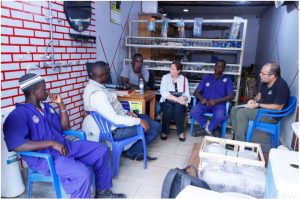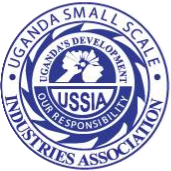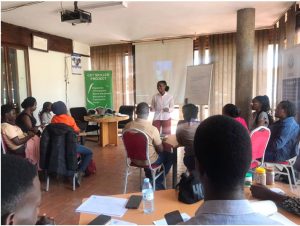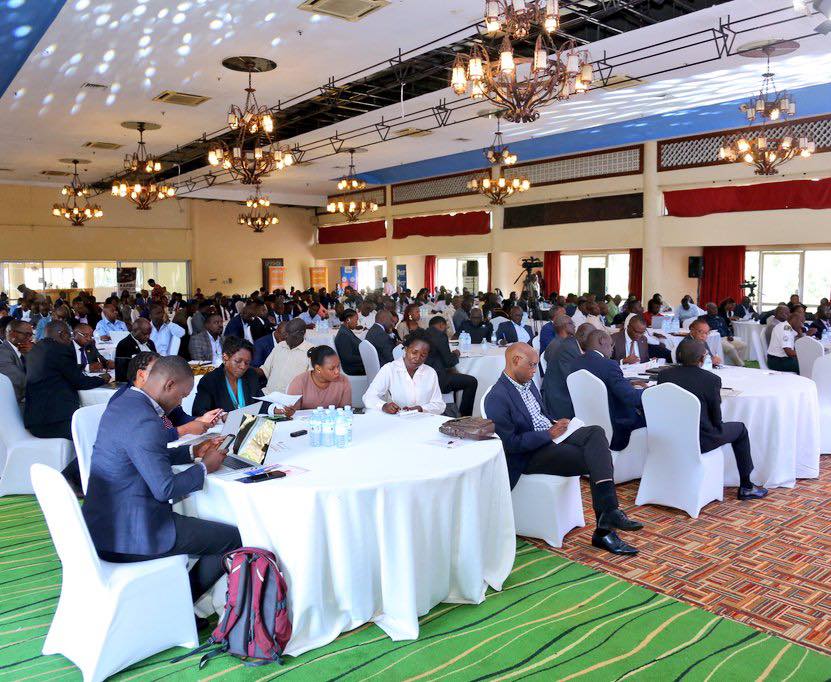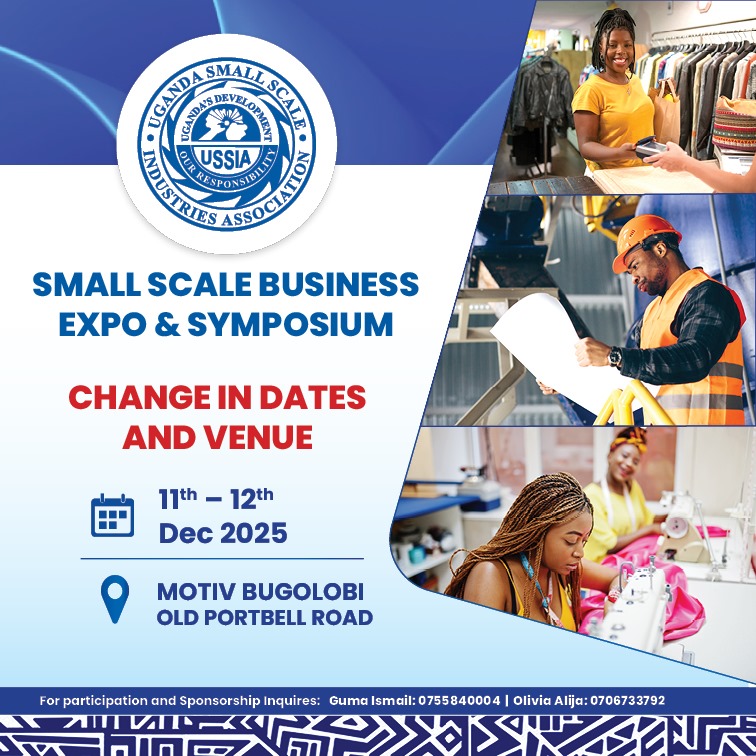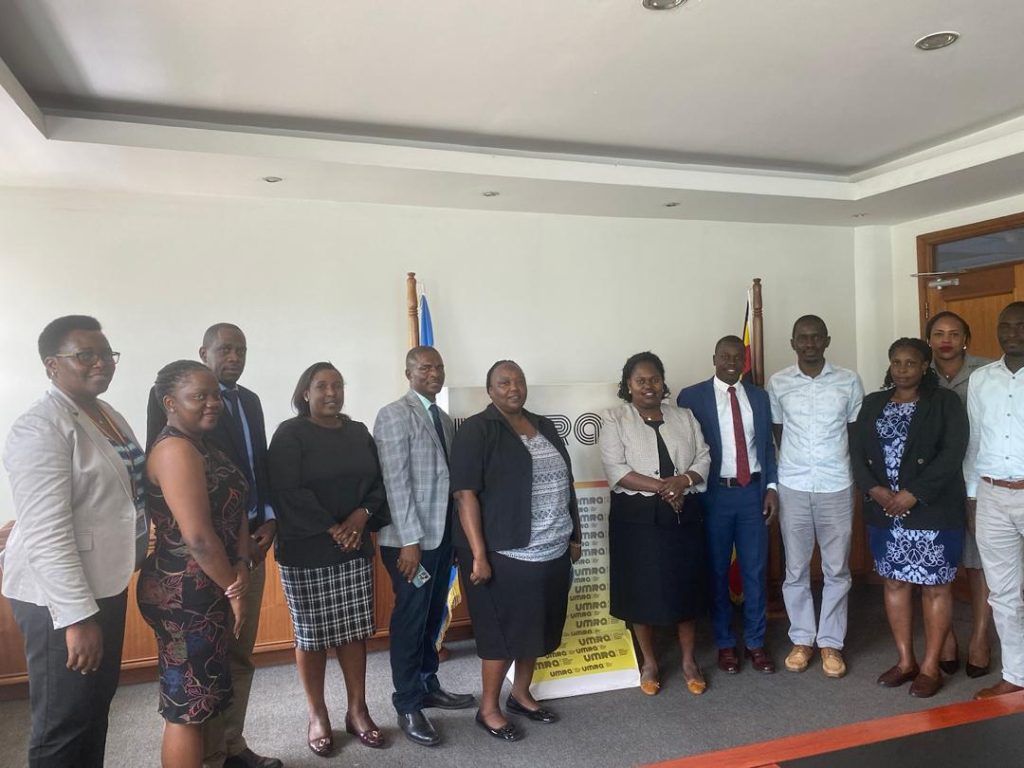GET SKILLED PROJECT Hosts WHH Delegation
The GET SKILLED PROJECT recently had the Honor of hosting a significant visit by senior representatives from Welthungerhilfe (WHH), including the Eastern and Southern Africa Deputy Regional Director and the Country Director. This visit marked an important moment for the project, as key stakeholders gathered to discuss the progress of youth initiatives, explore the collaboration between the project and local government, and engage with both youth participants and trainers.
Progress and Impact on Youth
One of the main objectives of the visit was to review the impact of the GET SKILLED PROJECT on the local youth population. The WHH delegation took the opportunity to meet with youth participants to hear firsthand about their experiences and challenges. During their discussions, the youth spoke candidly about the barriers they face, such as limited access to resources, uncertainty around career prospects, and the need for greater support in transitioning from training to employment.
Despite these challenges, many expressed optimisms about their future plans. They shared how the skills development they have received through the GET SKILLED PROJECT has empowered them with new opportunities for economic independence and self-improvement. The delegation listened carefully to their aspirations, providing encouragement and reiterating WHH’s commitment to supporting the next generation through education, training, and development.
Strengthening Partnerships with Local Government
Another important aspect of the visit was the dialogue surrounding the collaboration between the GET SKILLED PROJECT and local government authorities. Both sides discussed ways in which they can work together to further strengthen youth empowerment initiatives and ensure that these efforts are sustainable in the long term.
The local government representatives praised the GET SKILLED PROJECT for its focus on developing practical, market-oriented skills that are in high demand. They also emphasized the importance of creating synergies between community-based projects and national policies, ensuring that youth programs align with broader developmental goals.
Engagement with Trainers and Implementation Partners
The delegation also had the opportunity to visit some of the project’s trainers, who play a pivotal role in delivering quality education and skills training to youth. The trainers shared insights into the curriculum, training techniques, and the impact the program has had on both participants and the community. The WHH representatives were impressed by the trainers’ dedication and the personalized approach they take to help each youth participant succeed.
Additionally, the delegation commended the efforts of implementation partners like the Uganda Skills and Innovation Academy (USSIA) and the Knowledge and Innovation Foundation for Alternative Development (KIFAD). These organizations are instrumental in the successful execution of the project, providing hands-on support and ensuring that youth have access to relevant, up-to-date training programs.
A Future of Opportunity and Empowerment
The visit concluded with a renewed sense of purpose and commitment from both the GET SKILLED PROJECT team and their partners, including WHH. There was unanimous recognition of the vital role that skills development plays in breaking the cycle of poverty and unlocking new opportunities for young people. The WHH delegation expressed their continued support for the project and underscored the importance of further expanding these efforts to reach even more youth in the region.
As the GET SKILLED PROJECT moves forward, the lessons learned from this visit will be integral to shaping the next phase of the initiative, ensuring that youth are equipped not only with practical skills but also with the confidence and support they need to realize their full potential. With strong collaborations between international organizations, local governments, and grassroots implementation partners, the future looks bright for the youth involved in this transformative program.
Conclusion
The successful visit by WHH officials highlighted the tangible progress being made in youth empowerment and skills development. By fostering strong partnerships and engaging directly with youth, trainers, and local stakeholders, the GET SKILLED PROJECT continues to make significant strides in creating lasting change. With a collective commitment to empowering the next generation, this initiative stands as a model for how collaboration, innovation, and dedication can open doors to a brighter future.
